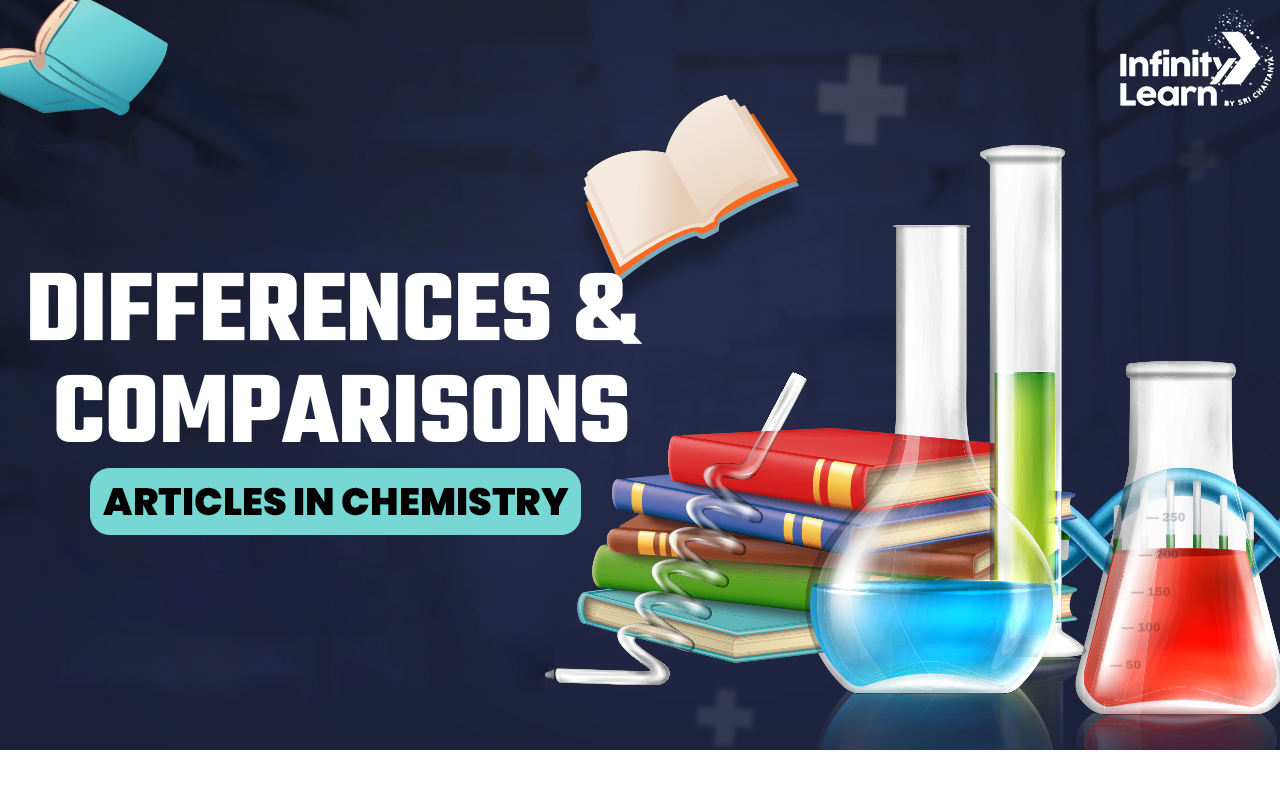Table of Contents
One of the most common types of questions in chemistry exams is about differences and comparisons. Below, you’ll find various articles that discuss differences and comparisons related to chemistry. These articles present the information in an easy-to-understand table format, making it simpler for students to grasp.

Benefits of Differences & Comparisons Articles in Chemistry
- Improved Understanding: Comparing concepts directly helps you grasp their core ideas more easily.
- Precise Knowledge: It helps you pinpoint the exact differences between topics, preventing confusion.
- Efficient Revision: You can quickly review and refresh your memory before exams with a consolidated reference.
- Critical Thinking Boost: It encourages you to dive deeper into the details of chemical reactions, fostering better analytical skills.
- Increased Confidence: A better understanding of concepts boosts your problem-solving abilities and confidence in tackling challenges.
- Effective Exam Prep: It serves as a helpful tool for last-minute revision, aiding in better preparation for tests.
- Real-world Applicability: The knowledge gained is not limited to exams; it can be applied in practical situations.
- Promotes Discussions: It makes it easier to engage in group study sessions and discussions with peers.
- Organized Learning: The structured approach helps you assimilate information systematically.
- Strong Foundation: It prepares you for more advanced studies and exploration in the field of chemistry.
Differences & Comparisons Articles in Chemistry
Important points about the Difference Between Questions in Exams
- In Higher Secondary Level Chemistry exams, you’ll often come across different types of comparison questions. These questions mainly focus on qualitative comparisons.
- The marks assigned to “Difference Between” questions typically range from 3 to 7 marks.
- When tackling such a question in Chemistry, start by specifying what is being compared, and then explain how each thing, place, process, or whatever it is, relates to this aspect.
- For questions that ask you to “compare and contrast” or simply “compare,” you should include both similarities and differences in your response. On the other hand, when you encounter questions that instruct you to “distinguish between,” your answer should focus solely on pointing out the differences.
FAQs on Difference & Comparisons Articles in Chemistry
What is the difference of chemistry compared to other field of science?
Chemists explore the building blocks of stuff and how those tiny bits of stuff interact with each other. Physicists, on the other hand, dig into why stuff acts the way it does and why those building blocks mix and mingle like they do. Chemistry zooms in on the super tiny stuff, like atoms and molecules, and watches how they play with the world around them.
What is the difference between science and chemistry?
Chemistry is a part of science. Science is how we figure out things about the natural world. We do this by looking at things, trying them out, and making models to explain what we see.
How often should I consult the 'Chemistry Difference Between'?
When you're unsure about the differences between related chemical theories, the 'Chemistry Difference Between' can be a helpful resource for clearing things up.







